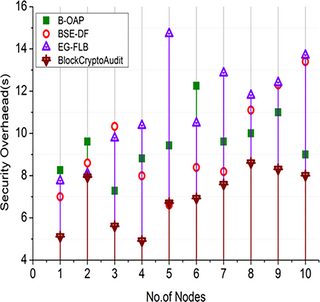Introduction
In the rapidly evolving digital landscape, businesses face increasing pressures to secure sensitive internal audit data. As traditional auditing processes become vulnerable to cyber threats and fraudulent activities, a groundbreaking fusion of blockchain technology and advanced encryption solutions emerges as a beacon of hope. This article explores how these technologies together enhance internal audits, ensuring data integrity, security, and reliability.
The Role of Internal Auditing in Corporate Governance
Effective internal auditing is pivotal for improving corporate governance and driving risk management. With growing concerns over data security, enterprises are urged to adopt innovative solutions to strengthen their internal controls. Blockchain technology offers a robust response, enhancing confidentiality and securing financial data from potential breaches. This paradigm shift not only protects audit data but also ensures compliance with critical regulations.
Introducing BlockCryptoAudit
BlockCryptoAudit stands out as a novel framework that integrates additive homomorphic Paillier encryption with blockchain technology. This hybrid approach enables organizations to conduct secure computations on encrypted audit data while maintaining the integrity and confidentiality of sensitive information. The system’s automated audit trails and role-based access controls further underscore its significance in ensuring secure and transparent auditing practices.
Benefits of Blockchain in Audit Processes
Blockchain technology’s inherent features—immutability, transparency, and decentralization—facilitate the creation of tamper-proof audit trails. These characteristics are essential for maintaining audit integrity and enabling secure data sharing. By integrating encryption, organizations can leverage these benefits to prevent data tampering and unauthorized access, ultimately boosting trust in the audit process.
Challenges and Solutions in Implementing Blockchain
While blockchain presents substantial advantages in auditing, challenges such as scalability and resource intensity require ongoing research and development. Addressing these issues involves refining encryption methods and enhancing the system’s capability to handle large datasets efficiently. The article delves into the potential pitfalls of existing models while highlighting the need for more adaptable and secure solutions that prioritize data protection.
Key Takeaways
- Blockchain and encryption can significantly enhance internal audit data security.
- BlockCryptoAudit introduces innovative frameworks to ensure confidentiality and integrity.
- The combination of these technologies can deter fraud and protect against data breaches.
- Scalability and robust encryption are critical for future developments in auditing.

